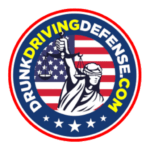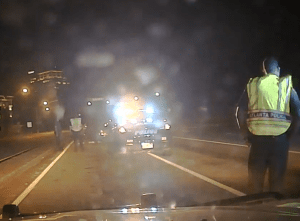Depending on State DUI-DWI laws, your prior criminal record for impaired driving, your DUI blood test results, and whether an accident occurred, DUI charges can be classified as felony DUI charges, aggravated DUI charges, or misdemeanor DUI charges. Plus, in most states, having a child in the vehicle while drunk can be a felony, or may add additional driving while intoxicated (DWI) charges to your criminal accusation.
The overwhelming majority of DUI arrests lead to a drunk driving misdemeanor case. So, a first offense DUI and driving under the influence cases that do not involve serious bodily injury, property damage, or a vehicular homicide are usually a misdemeanor charge. The charges you face will be printed on the traffic citation or bond papers you received as you left jail.
Even if this is your first offense DUI, do not take this criminal charge lightly. Every state has enacted tougher DUI laws over the last 2 decades, and even a DUI first offense usually means mandatory jail time, driver’s license loss or route-restricted limited driving privileges, or mandatory ignition interlock. Any DUI conviction carries a lifetime of harsh consequences, and especially if this is your first DUI arrest, you may not realize how many DUI penalties will present themselves even years from now.
To get the sobering facts about the far-reaching DUI consequences, read Atlanta DUI lawyer William C. Head‘s “97 Consequences of a Georgia DUI Conviction.” Potential consequences of a DUI conviction can include job loss, diminished future job opportunities, restricted travel outside the United States, and difficulty when applying to colleges. Also, Mr. Head’s DUI Book can be obtained FREE, in a PDF format, if you contact his office about DUI defense help.
DWI Charges – Drunk Driving Charges
In states that arrest motorists for “Driving While Intoxicated,” also known as DWI, that state’s DWI charges are just as severe as charges in DUI states. The acronym is simply a matter of state law and statutory wording. Drunk driving charges in all 50 states require a top DUI lawyer to fight in court for your freedom.
Local jurisdictions are under constant pressure from the federal government and from citizen’s groups like Mothers Against Drunk Drivers (MADD) to prosecute drunk drivers to the fullest extent of the law. A solid DUI defense or DWI defense must be built through extensive investigation and preparation, and successfully presented in a court of law to give you the greatest chance of winning your DUI case. A “win” can consist of a reduction in charges to reckless driving for example, or even an acquittal.
The ultimate choice of who you retain for your DUI defense, whether it is a public defender, or a private DUI attorney, is your decision. Financial consideration may mean that you cannot afford to hire the best drunk driving attorney. We strongly recommend that you call our local State DUI-DWI affiliate first for a free initial consultation before you make that very difficult DWI defense decision. We will be honest and open with you at all times.
You should leverage our decades of successful DUI defense, as have thousands of our previous clients. Our DWI-DUI attorneys know your local court system and have worked with the judges and prosecutors in your town.
DUI cases are very complicated, and many DUI defense strategies and ways to beat the breath test exist to attack the state’s evidence, like filing targeted pre-trial motions in an effort to exclude forensic evidence results (breath alcohol tests or possibly a DUI blood test).
Top drunk driving lawyers in your area will be able to investigate roadside sobriety tests given by police, to see if the field sobriety test evidence can be excluded. There are three standardized field sobriety tests that are authorized by NHSTA, and these are the horizontal gaze nystagmus test (or HGN test), the walk and turn test (or WAT test), and the one leg stand test (or OLS test). Of these three optional, voluntary tests, the HGN eye test is the one most commonly excluded from evidence prior to trial. Most courts in the USA have recognized that this field sobriety test is premised on medical science, and must be administered correctly, scored correctly, and only done after the DUI suspect is medically cleared for being put through this psycho-physical field sobriety test.
DUI Lawyer – Drinking and Driving Facts – DUI Offenses
You may be charged with one or more traffic offenses that justify your vehicle being stopped by the police. This is called “probable cause” to seize you and your motor vehicle, by use of emergency lights and the siren to pull you over. Such a pullover will implicate the Fourth Amendment and also State constitutional rights.
The most common police pullovers are for speeding or failure to maintain lane. Other types of probable cause can include failing to stop at the scene of an accident, driving on a suspended license, driving without insurance, hit and run, reckless driving, impeding the flow of traffic, and attempting to elude an officer.
At police DUI checkpoints, none of the usual traffic violations are observed. A sobriety checkpoint is a warrantless stop and is an exception to probable cause. However, if the officer suspects impaired driving, you will be commanded to pull off the roadway to the side so that another officer can conduct a DUI investigation. Any questioning or any request for field sobriety tests is OPTIONAL, and you can simply decline to take any HGN, WAT, OLS or other police tests at the roadway.
Once detained, other possible tickets may be issued against you, such as an open container violation, destruction of property, marijuana possession, or firearms possession. If you are asked to pull over at a DUI checkpoint, do so immediately. Do not try to escape being stopped, or a police “chase car” will follow pursuit. However, never admit to drinking, and only give your name and address. Because you now know that field sobriety tests are VOLUNTARY, and that you can remain silent, police may not have sufficient evidence. Be courteous and respectful in your responses, but advise the officer that you politely decline to take these roadside sobriety tests. DUI laws in each state can be confusing. If arrested for DWI-DUI, your best bet is to contact a skilled and experienced local DUI lawyer to get a clearer picture of the seriousness of your DUI charges. Ask your drunk driving lawyer how you can fight these charges in court. Call us at 1-888-839-4384 day or night, 7 days a week.

Find The Top-Rated DUI Lawyers Near You
We have listings for the top DUI lawyers in all 50 states and the District of Columbia. Find the best DUI lawyer for you by clicking on your state here.






